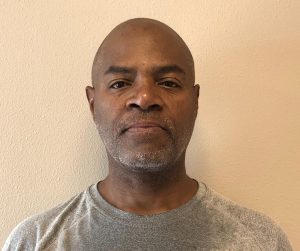A judge blasted Susan Crawford for voting in secret to recommend commuting the sentence of the “hand in the pocket robber” in Racine.
Leftist Dane County Judge Susan Crawford, when she served as then-Democratic Gov. Jim Doyle’s pardon board chair, was accused of trying to rush the pardons of 27 convicted criminals by skipping the normal interview process, Wisconsin Right Now has documented.
Another board member went to the media, concerned that pardon requests would be granted without the pardon board having the chance to speak with the inmates, as Doyle ramped up the number of pardons at the tail end of his term.

As Doyle’s pardon board chair, Crawford, who is now running against former AG Brad Schimel for a seat on the Wisconsin State Supreme Court, ran into a slew of controversies. The board member blasted her for the interview change; a judge blasted her for voting in secret to recommend that Doyle commute the sentence of the hand in the pocket robber; the DA opposed the commutation, and the news media raised transparency concerns. In the end, Doyle split with Crawford on that serial robbery and another armed robber’s case and declined to commute their sentences.
Interestingly, the media covered the controversies pretty aggressively at the time, especially because Doyle was escalating the number of pardons. He was soon succeeded by Republican Gov. Scott Walker, who instituted a strict no-pardon policy (Gov. Tony Evers has opened the floodgates back up.) However, now with Crawford trying to cement the liberal majority on the state’s highest court, the media are barely scrutinizing her record (The Milwaukee Journal Sentinel is too busy distorting Schimel’s comments on bathrooms.)

According to an Associated Press story that ran in the Waukesha Freeman on Nov. 17, 2010, the pardon board’s then-chair, Susan Crawford, “decided to allow 27 applicants convicted of misdemeanors to skip the hearing.” After another member of the Pardon Board criticized the decision, the Board reversed course on plans to do the same with a group of felons.

According to the Republican Eagle, Crawford voted outside a public meeting to “recommend reducing the 80-year prison terms for armed robbers Walker Johnson of Milwaukee and Darryl Norton of Racine,” drawing more criticism. It was the first commutation recommendation in 15 years. Other stories give the inmate’s name as Walter Johnson.
Cindy O’Donnell, the state Justice Department’s representative on the board, told the AP that it appeared Crawford wanted to “move through applicants quickly before Gov. Jim Doyle” left office by skipping the interviews.

O’Donnell wrote an email to Crawford saying she was “worried about basing recommendations solely on documents. She also questioned whether the policy change violates a nearly decade-old gubernatorial executive order that requires the board to listen to each applicant at a hearing,” the AP reported.
“The board considered pardon requests for people convicted of misdemeanors at its Nov. 17 meeting without interviewing the applicants, a break from the board’s long-standing practice,” The Milwaukee Journal Sentinel wrote.
According to the newspaper, Crawford suddenly reversed course after the criticism erupted.
“The board had planned to hold a similar meeting in December in which requests from felons would be considered without interviewing applicants. But during the Nov. 17 closed meeting, Crawford said she was changing course and would take testimony from all felons applying for pardons,” The Journal Sentinel added.

The AP story reported that Crawford, at the time, doubled “as Democratic Gov. Jim Doyle’s chief lawyer.”
The governor’s spokesman told AP at the time that in “very few cases,” convicted criminals had waived their appearances. But O’Donnell, who worked for then-Republican Attorney General JB Van Hollen, claimed Crawford “told the applicants to waive their appearances.” She said she had “consistently objected,” the AP reported.
It was not the only controversy. She was also accused of taking secret votes.
The AP reported on Nov. 24, 2010, that, as chairman, Crawford “refrained from publicly voting on commuting the sentences of two inmates,” Walter Johnson and Darryl Norton” who “argued their robbery sentences are excessive.”
However, she subsequently registered her vote “in favor of the commutations a day later, outside of the board meeting,” the article says. Doyle’s spokesman said Crawford was ill at the meeting. But the Journal Sentinel noted that she voted on pardons at the same meeting where she skipped the public vote on the commutations, which had already generated news coverage.
“The board voted 3-3 on Johnson’s request and 4-2 against Norton’s request. The next day, Crawford voted in favor of both requests. That made the board’s final vote 4-3 to recommend granting Johnson’s request and 4-3 to recommend denying Norton’s request,” The Journal Sentinel reported at the time. Doyle had the final say.
The Milwaukee Journal Sentinel also reported at the time that Crawford “tried to close the Nov. 17 board meeting to the public without a vote by the board, but held the vote after reporters protested that one was required.”
Wisconsin Freedom of Information Council President Bill Lueders was quoted in that story as saying Crawford’s action “certainly violates the spirit and intent” of the open meetings law, although the Milwaukee Journal Sentinel wrote that it appeared not to violate it.
That came after the AP conducted a review in October 2010 that found that Doyle had granted 85 pardons “between mid-August . . . and the same time this year, a little more than a third of the 214 pardons the governor has issued since he took office in 2003.” In other words, Doyle was stepping up the pace before Republican Gov. Scott Walker took office.
That was an escalation from Gov. Tommy Thompson, who granted 62 pardons from 1994 to 1999, AP wrote.
According to AP, most (but not all) of the Doyle pardons went to “small-time criminals.” The authority to grant a pardon was in the hands of the governor, but Doyle’s spokesman said he had never gone against the unanimous recommendation of the advisory board.
Crawford has long advocated measures favorable to criminal defendants. In a 2018 article in the Capital Times, Crawford said she strongly supported the “use and expansion of restorative justice and diversion programs” as well as bail reforms to “make sure low-income people aren’t held in jail solely because they can’t make cash bail.” She described her values as “progressive.” We previously wrote that she helped gut a law to monitor sex offenders and gave a weak sentence to a child molester.
“As chief legal counsel to Gov. Jim Doyle, I was chair of the Pardon Board. I heard from hundreds of citizens struggling to access employment, housing credit, and other needs due to long-ago criminal convictions,” she said.
The judge who sentenced Norton blasted Crawford. Racine County Circuit Judge Dennis J. Barry “sentenced Norton and opposes commuting his sentence. In an e-mail to the Journal Sentinel, Barry expressed surprise at how Crawford voted on the recommendation,” the newspaper wrote at the time.
“Regarding Ms. Crawford’s voting in these matters, I would say that it seems highly unusual and doesn’t speak much for her adherence to Wisconsin’s tradition of openness in government,” Barry wrote. “Why would she do that and is that even authorized procedure? Did she have to consult with the governor first?”
O’Donnell voted against commuting the sentences, according to the Journal Sentinel at the time.
“They’re very, very serious offenses,” she said. “I don’t think it’s appropriate for me to substitute my judgment for the sentencing court judge.”
Lester Pines, an attorney helping one of the inmates, later became Crawford’s boss. While working for him, she would file lawsuits seeking to eradicate the state’s Act 10 and Voter ID laws.
An article in the Racine Journal Times in 1989 said that Norton, then 23, was a suspect in a string of gasoline and convenience store robberies and was accused of an additional 10 robbery charges.
He was arrested on eight charges of armed robbery and two charges of robbery, the article stated. He held his hand in his jacket pocket as if armed and demanded money from clerks, it says.
At the time, he “was on probation from a strong arm robbery conviction” the Journal Times wrote.
A 2006 article in the Racine Journal Times said Norton received an 80-year sentence in the 1980s. In 2004, he appealed to have the sentence reduced but lost.
He pleaded guilty to five counts of armed robbery as a habitual offender and was sentenced to the term in 1990, the story says.
At the time of sentencing, the judge noted that Norton was released from prison for armed robbery in 1988 and was committing robberies again within two months, blaming cocaine addiction but being unwilling to participate in treatment, the story says.
The judge wrote that Norton had “lone involvement in 12 robberies while on parole for previous robberies,” that article says.
Racine County DA Mike Nieskes wrote, according to the Journal Sentinel, that “Mr. Norton may have made strides in his behavior while in the Department of Corrections. He may have addressed certain issues, which may make him less of a risk. However, that is not a reason for the Pardon Advisory Board nor the Governor’s Office to upset the sentence of the court and sit as a Super-Appellate Court on the questioning of sentencing in this or almost any other matter.”
Norton was called the “hand in the pocket robber,” according to a news article from the time.
As for Johnson, the Journal Sentinel reported that “armed with a sawed-off shotgun, Walker (Walter) Johnson and two others robbed a Milwaukee tavern in 1990, when Johnson was 21 years old.”
He got 80 years as well. Judge Rudolph Randa sentenced Johnson.
Norton ended up being paroled in 2011, according to Corrections records. By 2012, he was admitted to the Milwaukee Secure Detention Facility on a DCC hold, and the same occurred in 2012. He was last released from a DCC hold in 2012.
Today he is on active community supervision.
He reoffended in 2016, committing felony fleeing an officer and third offense OWI, court records show. He was sentenced to probation and a time-served disposition of 177 days in jail.
It’s not clear what happened to Johnson.










